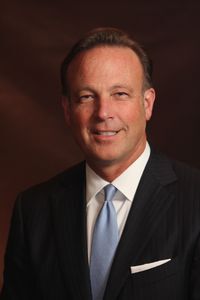
7 Advisors' Best Investment Ideas For This Election Year<br><br>
Its only March and the Republicans still havent settled on a challenger to President Obama, but advisors and clients are already making investment decisions today that take into account not only the presidential and congressional changes (or lack thereof) coming later this year, but how the process will impact the markets between now and the first Tuesday in November.
Heres an interactive slide show detailing the best investment ideas for this election year from seven financial advisors practicing throughout the country.

Debbie DeMatteo, Vice President, 10-15 Associates, Inc.<br><br>
Location: Goshen, N.Y.
If you believe that the Republicans will be successful in taking back the White House it makes the case for increasing your allocation to financials, industrials and energy. Easing of the regulatory environment along with a move toward pro-growth/pro- business policies would be a catalyst to all of these sectors.
If you believe Obama will be successful with his bid for a second term you can do just about the opposite as above. We would be advising our clients to remain defensive and focus on capital preservation. Also, with the threat of Europe still hanging over us, no matter what happens in our election I would be sticking to what has been working in my stock selections keeping an emphasis on income and quality.

Ryan Wibberley, Founder, CIC Wealth Management<br><br>
Location(s): Washington D.C. and Maryland
If it appears that President Obama will be re-elected, we will look for opportunity in the alternative energy space, because he favors clean/renewable energy sources. Tax rates will likely rise so we will look for opportunity in tax-free municipal bonds. Money will likely be redirected from wars to infrastructure projects, so we will look for opportunity in basic materials companies, engineering firms and industrial goods/services providers.
Under a Republican leadership, we see a major opportunity in the beaten down financial sector and would expect a major relief rally. Financials will likely thrive in the more business friendly environment that is promised by the Republicans. Big oil/oil service companies look very attractive because the republican leadership favors the production of domestic energy which will likely include more oil and natural gas drilling in the U.S. and off-shore. We would expect that the tax rate on dividends would stay at 15%, which will drive companies to start raising their dividends, so we would look to own high dividend paying stocks.

Brian Holmes, President and CEO, SEIA, LLC<br><br>
Location: California
Every presidential election always produces discussion about stock market performance as a function of which party is in office. Contrary to popular belief, the market has historically faired better during Democratic administrations. In fact, the worst performing years have occurred during a GOP-controlled Presidency, House, and Senate (3.3%). Split control has produced the best-performing years, with a Democrat President and Republican controlled House and Senate (15.3%).
It is extremely difficult to properly gauge the singular affect one partys policies can have on the market over the short term. Government policy, while it may have a short term psychological affect, in reality takes years and a few business cycles to fully take affect on the market.
Lets try to look at some basic facts: 70% of the past 16 presidential election years have been positive for the stock market; which is ironically very similar to non-election years. Market movement is driven in part by investor confidence. The head winds may move against investor confidence this year, but things are slowly improving. If investor sentiment also continues to slowly improve and barring any unforeseen headwinds we could be in store for yet another positive election year in the market.

John Valentine, Founder, Valentine Capital Asset Management<br><br>
Location: California
Relative to this election year, we know two things: 1) either a Republican or a Democrat will win the White House, and 2) interest rates, as declared by Federal Reserve Chairman Bernanke, will remain near zero until the end of 2014. Our investment council, going forward, is influenced more by the latter. As stewards of our clients investment capital, we continue to overweight a fundamentally strong, diversified portfolio of domestic (and select foreign) dividend paying equities with less than 5% allocation to bonds and bond funds. With the goal of increasing investment cash flow further, we are employing the covered call writing strategy.
Should President Obama win a second term, we would slightly allocate more towards biotech companies and generic pharmaceutical makers. Additionally, potential higher taxes under the President's re-election would result in our allocation adjustment. We would increase growth equities if dividend income tax is increased from the current 15% flat tax rate to a higher tax rate. If a Republican candidate should win, we would overweight healthcare companies in the large branded prescription drug space as well managed care and insurance companies. Energy and technology would also be areas of increased allocation.

Jonathan Foster, President and CEO, Angeles Wealth Management<br><br>
Location: California
The new Obama tax plan, if adopted, is BAD for MUNIS. It would cause material changes in investor behavior. The Obama Plan calls for higher marginal rates at the top end, and a phasing out of some key investing benefits for the wealthy. The Romney tax plan would also be BAD for MUNIS. Obviously, a reduction in federal tax rates makes munis slightly less attractive. However, what makes the Romney plan really bad for munis is his plan to balance the Federal budget by pushing much of its social program funding responsibilities down to the states. This makes munis riskier, forcing prices lower and rates higher.
The Obama plan is BAD for EQUITY investors. Under the Obama plan, the beneficial 15% tax rate on long-term capital gains and dividends also receives a phase-out for Americas wealthy. These rates were instituted to ENCOURAGE investors to invest in equity, not debt, and stimulate corporations to return excess capital to investors. Therefore, if we do away with this benefit, wouldnt the effect be to DISCOURAGE this type of capital activity? Why would this be beneficial to our economy? The Romney plan is GOOD for EQUITY investors. No limitations or caveats here. Tax breaks on long-term gains and dividends is a good environment for equities of all types.
If the Obama Plan shows signs of going through as proposed, wealthy investors should lighten up on munis and high dividend-paying stocks in favor of investment-grade corporate bonds, and equities with high capital reinvestment rates, stock repurchase programs, and good long-term prospects. Though long-term capital gains rates would be higher, the value of the tax deferral inherent in long-term equity investing remains sound. If the Romney plan heads towards passage, municipal bond exposure should also be reduced and investors should focus on corporate bonds, dividend-paying stocks and MLPS for income, and cash-rich equities for growth.

Kurt Rozman, President, Rozman Wealth Management<br><br>
Location: Wisconsin
If Obama gets reelected he is likely to expand his current energy legislation. As Obamas energy legislation begins to kick in, alternative energy source companies will likely be the initial benefactors, in particular we will likely see natural gas become a bigger part of our nations energy infrastructure. Companies that own the rights to large pockets of natural gas and the equipment companies responsible for extracting it will likely be the first to rise. The continuation of this infrastructure shift will also push engine manufactures that produce natural gas motors used in trucking, and eventually America auto fleet into the limelight as well.
If the leading Republican candidates get elected Health care will likely be a key area for reform. Although each candidate has a slightly different idea of how its best addressed ,they all agree that building on Americas ability to innovate new health care products to export to the rest of the world is a good creator of jobs and tax revenue, sort of a win/ win for America. Should these political ideas become a legislative reality we would likely see a huge boom in the health care sector responsible for researching and developing all lines of health care products ranging from pharmaceutical to medical procedures?
This is arguably the largest industry in the world, affecting more people than any other industry. If restrictive legislation is removed, America could potentially move into a dominating position worldwide. The need for innovative health care and the proper distribution is growing at a frightening pace as the world population is growing exponentially and people are living longer than ever before in history.

Mag Black-Scott, President and CEO, Beverly Hills Wealth Management<br><br>
Location: California
“Let’s look to equities that pay a reasonable dividend and give an opportunity for some growth too. Proctor & Gamble, Coca Cola and Johnson & Johnson have all been around for many administrations and have grown their dividends over time. They are considered "safe" stocks in that they produce and sell that which we all need on a regular basis. They are not likely to fluctuate wildly no matter which party wins the White House this year. Let's look at energy. Costs of gasoline are higher at the pump, should we own a big oil, Chevron for instance, or a Master Limited Partnership such as (EDP)? The natural gas play, U.S. based and plentiful, gives investors an opportunity to step into an arena that will show positive returns for the foreseeable future. Alternatives show promise, but not much in the way of returns for investors just yet. Let’s put these in the "hold" column for now.”
“Banks have had a bit of a run - should you put a few dollars there? Major issues remain in the sector, and I would be inclined to avoid it for now. With low rates forecasted for the next couple of years in fixed income, I would stay on short durations if you go here - five years or less. If you're looking for enhanced yield in the taxable area, down to a BBB, there are some striking opportunities but stay with the big names. Don't over reach.”
“The United States will survive and will prosper again, but in the meantime we are in for a choppy ride. Good luck, and good investing!”





